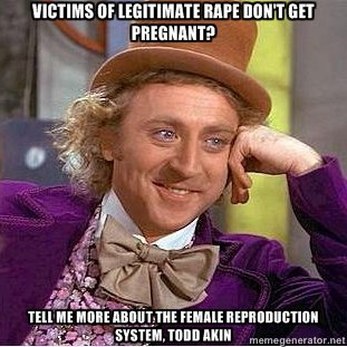
We have Congressman Todd Akin telling us that “legitimate rapes” don’t result in pregnancies. We have Senate candidate Tom Smith comparing pregnancy from rape to “having a baby out of wedlock.” Last year, Paul Ryan co-sponsored a bill in Congress that would ban federal funding of abortions except in cases of “forcible rape,” a term which he has refused to define, because, as he insists, it’s “stock language.” We have all kinds of liberal folks (seriously… Noam Chomsky?) insisting that Julian Assange, the editor-in-chief of the whistleblowing website Wikileaks, who has been accused of rape and sexual assault, should not have to respond to Swedish police questioning, because—you know, he’s one of “our” guys.

My sisters, this is a boatload of confusion.
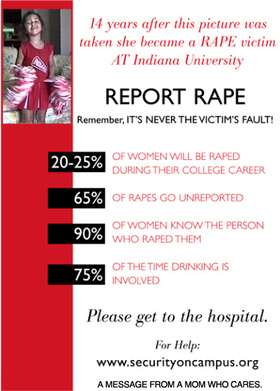
Later on, teaching at an elite private college, I began asking questions about the experiences of the young women I was teaching. When asked if they knew of cases of date rape on campus, they expressed uncertainty as to whether or not their experiences with men would qualify. Since studies have shown that one in four college women have either been raped or suffered attempted rape, and since studies have also shown that one in twelve male students surveyed had committed acts that met the legal definition of rape, and since studies have also shown that one third of males surveyed said that they would commit rape if they could escape detection, and since one fourth of men surveyed believed that rape was acceptable if the woman asks the man out, and the man pays for the date or the woman goes back to the man's room after the date… well, I don’t think it's going too far out on a limb to suggest that a significant number of these confused young women had, indeed, been date raped.
The problem here appears to run deeper than “No means no.” Looking for the source of the confusion, I believe that I may have found the culprit.

In the Merriam-Webster Dictionary, sex is defined as “sexually motivated phenomena or behavior.” Not too helpful. Kind of like looking up “tennis” and reading that it is a “tennis phenomenon or behavior.”
Looking up “sexual” is not much help either: “having or involving sex"... which of course leads us back to “sexual.”
Sex, like “forcible rape,” appears to be “stock language.” Nobody needs to define it, because we all know what it is. But--see above--apparently not.
I am a writer, and like under-celebrated, African American genius Toni Cade Bambara, I believe in “acts of language.” I’m going to commit one now. I’m going to suggest a new word for sex. And it’s going to be a gynocentric, subjective word, referencing the clitoris not the vagina.

I admit, I am taking my cue from the late, great Monique Wittig, whose acts of language opened my eyes to wild possibility. In her Lesbian Peoples: Material for a Dictionary, she and Sande Zeig coined the word “la cyprine” to refer to the vaginal secretions that signal sexual desire. [“Sécrétion vaginale, signe physique du désir sexuel. Une agitation trouble l'écoulement de la cyprine.”] The derivation for her neologism is the island of Cyprus, legendary birthplace of Aphrodite, the goddess of love.

In other words, these young women who are unclear about whether or not they are experiencing date rape will have absolute clarity as to whether or not they are experiencing cypriation. Furthermore it will facilitate their understanding that any interaction with their vulva that is not cypriation is a potential form of violation and not acceptable... unless, perhaps, the woman's primary incentive is achieving pregnancy.
 Fragment of Sappho
Fragment of Sappho What has happened is that women’s experience and women’s anatomy and women's pleasure have been stolen in a linguistic equivalent of three-card monte.
Sisters, take back the clit! Occupy the dictionary! And as our great foremother Sappho would sing, “We shall enjoy it/ as for him who finds/ fault, may silliness/ and sorrow take him!”

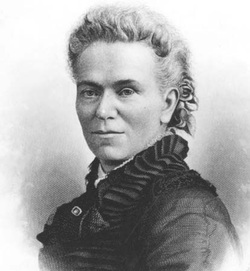


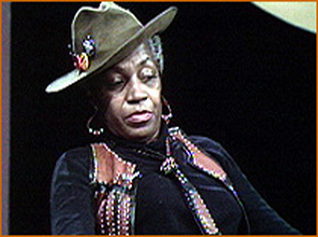


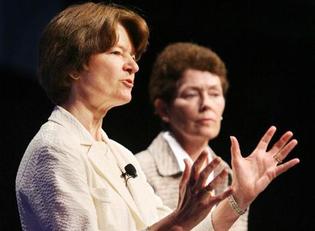



 RSS Feed
RSS Feed
